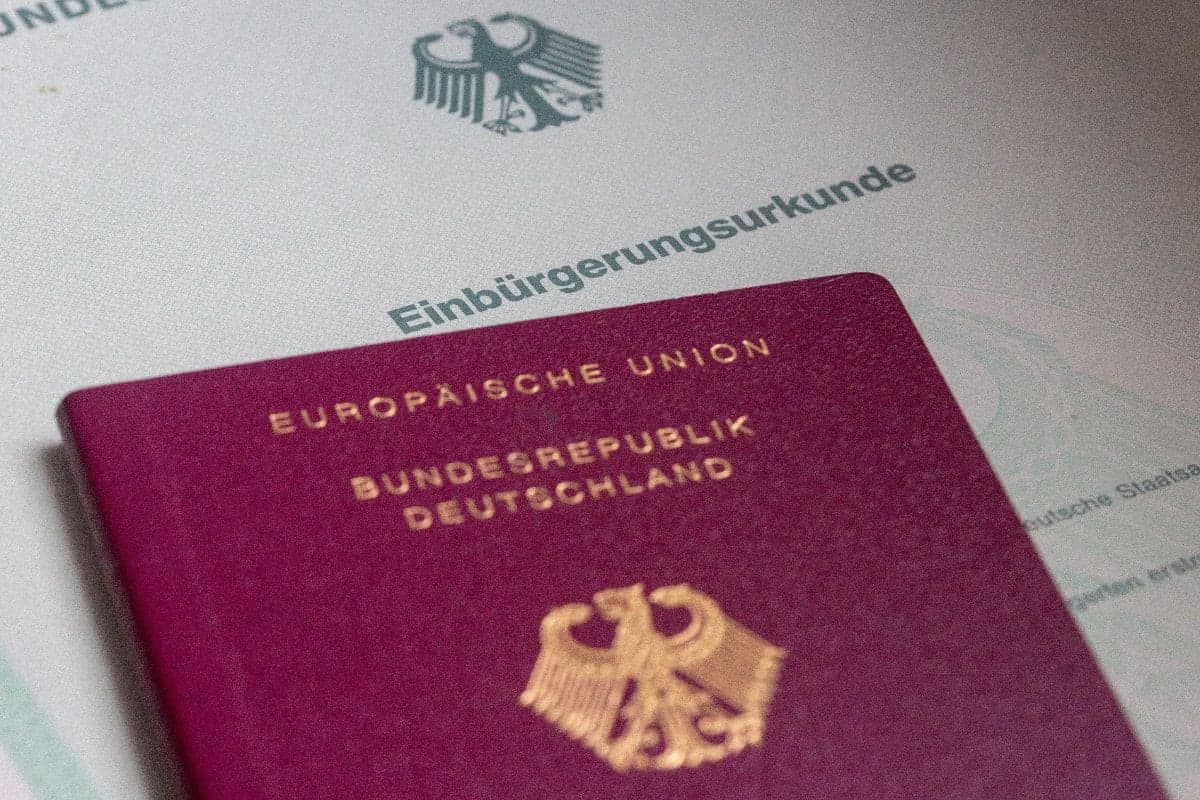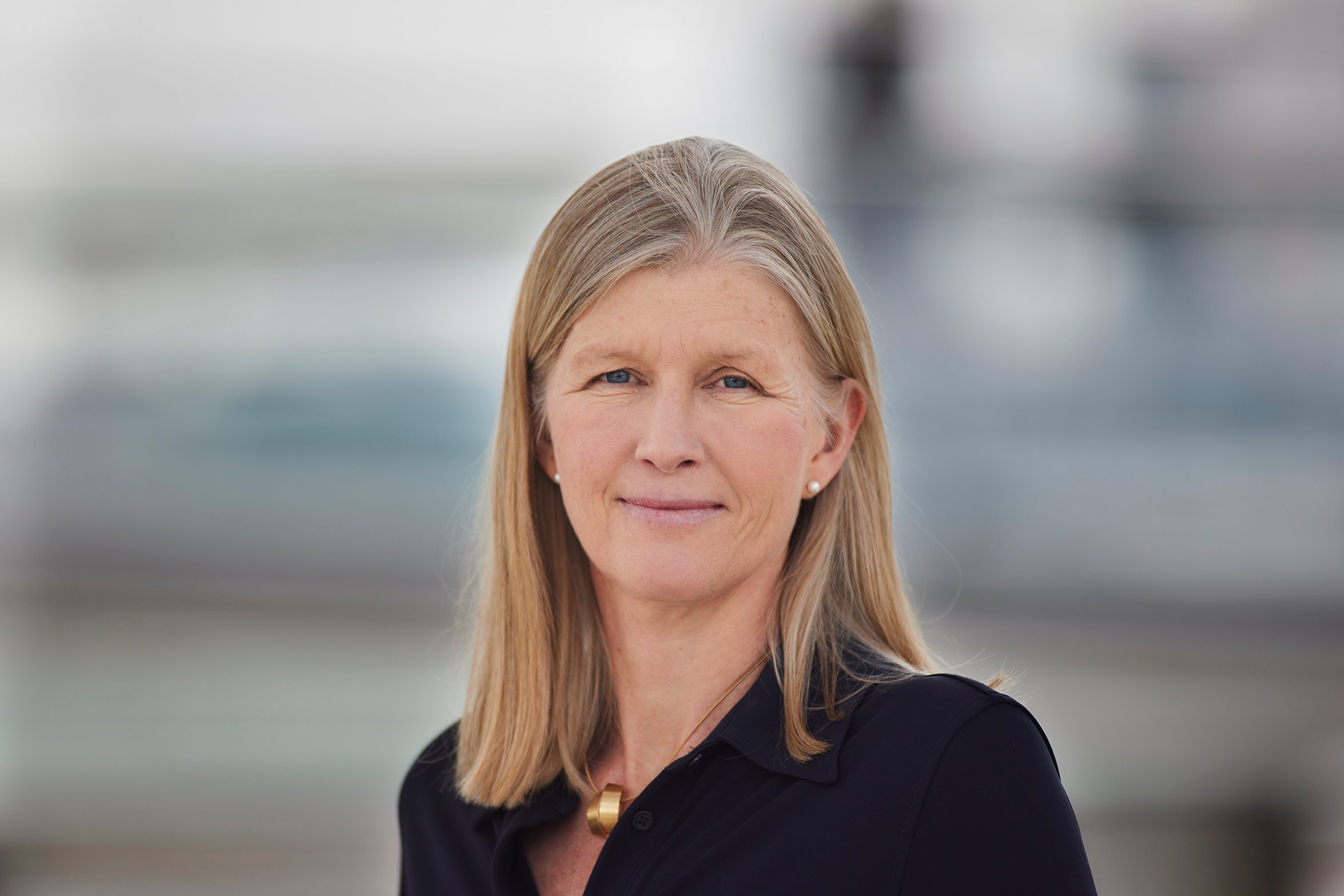German citizenship offices see spike in applications ahead of new law

With Germany on the verge of relaxing its citizenship laws, local authorities around the country say they are inundated with enquiries and applications.
Almost three years after the reform was first announced, the traffic-light coalition's new citizenship act setting out shorter waiting times and dual nationality will come into force this Thursday.
According to a new survey by German news association DPA, naturalisation offices around the country have been receiving numerous enquiries about the new law in recent weeks and expect applications to increase once the new rules are introduced.
"With the new federal citizenship law coming into force this spring, we expect the number of naturalisation applications and naturalisations to rise significantly again in 2024," Annette Kindel, Head of the Hamburg Office for Migration, told DPA.
Last year, 7,537 people became German citizens in the Hanseatic city, and 3,128 naturalisations followed in the first five months of this year.
In Berlin, where a new online application and screening tool have been introduced, around 16,000 applications were submitted between the start of the year and the end of May, while the Quick Check screening tool had been used 160,000 times.
READ ALSO: REVEALED - The citizenship waiting times and backlogs in major German cities
According to a spokeswoman for the Senator of the Interior, the Bremen Migration Office has received a large number of enquiries about the new regulations, especially on the issue of multiple citizenship.
For this reason, a significant increase in applications is also expected in the second half of the year: a spokesperson recent told The Local that applications are expected to double to 10,000 per year.
In Bavaria, meanwhile, more than 36,000 people were naturalised in 2023, compared to around 28,000 naturalisations in the previous year.
In the first four months of this year, there were around 14,500 naturalisations in Bavaria, with much of the increased demand coming from newly eligible refugees. Munich alone is facing a backlog of around 18,000 applications and waiting times of 12 to 18 months at present.
With the authorities expecting a further spike in applications thanks to the new law, the employees of the naturalisation authorities are being encouraged to simplify and digitalise processes as much as possible.
"Due to the rising number of naturalisations, staff numbers have been increased considerably in recent years," said a spokesperson for the city of Magdeburg.
The state capital of Saxony-Anhalt is currently working on digitalising processes in order to reduce the workload on existing staff.
This is also the case in Leipzig, where foreigners will soon be able to submit their citizenship applications online. In Bavaria, Hamburg and Berlin it is already possible to do so.
READ ALSO: What are citizenship offices around Germany doing to prepare for the new law?
Faster routes to citizenship
Penned by the centre-left coalition of the Social Democrats (SPD), Greens and Free Democrats (FDP), the upcoming citizenship reform will permit foreigners to hold multiple nationalities.
It also foresees quicker routes to citizenship by cutting residence times from eight years to five, or even down to three exceptional circumstances.
The law is an important signal to people with a history of migration "that we see them, recognise them and allow them to participate democratically," said Filiz Polat, a Greens politician who worked on the bill. But it also a signal against the "shift to the right" in German politics.
Speaking to DPA on Tuesday, FDP immigration expert Ann-Veruschka Jurisch claimed that the new law would not lower the requirements for citizenship.

FDP MP and migration expert Dr. Ann-Veruschka Jurisch. Photo: Laurence Chaperon
"There will be no more naturalisation for people who do not earn their own living," she said, referring to moves to tighten up financial requirements for foreigners who want to become German.
As the hurdles for naturalisation will be very high after three years - demanding at least C1 German and exceptional achievements in society, education or work - Jurisch predicts that well over 90 percent of people will only be naturalised after at least five years.
READ ALSO: Who qualifies for 'special integration' status under Germany's citizenship law?
Even before the reform, spouses of Germans were entitled to naturalisation after three years in Germany and two years of marriage, she pointed out.
With reporting from DPA
Comments
See Also
Almost three years after the reform was first announced, the traffic-light coalition's new citizenship act setting out shorter waiting times and dual nationality will come into force this Thursday.
According to a new survey by German news association DPA, naturalisation offices around the country have been receiving numerous enquiries about the new law in recent weeks and expect applications to increase once the new rules are introduced.
"With the new federal citizenship law coming into force this spring, we expect the number of naturalisation applications and naturalisations to rise significantly again in 2024," Annette Kindel, Head of the Hamburg Office for Migration, told DPA.
Last year, 7,537 people became German citizens in the Hanseatic city, and 3,128 naturalisations followed in the first five months of this year.
In Berlin, where a new online application and screening tool have been introduced, around 16,000 applications were submitted between the start of the year and the end of May, while the Quick Check screening tool had been used 160,000 times.
READ ALSO: REVEALED - The citizenship waiting times and backlogs in major German cities
According to a spokeswoman for the Senator of the Interior, the Bremen Migration Office has received a large number of enquiries about the new regulations, especially on the issue of multiple citizenship.
For this reason, a significant increase in applications is also expected in the second half of the year: a spokesperson recent told The Local that applications are expected to double to 10,000 per year.
In Bavaria, meanwhile, more than 36,000 people were naturalised in 2023, compared to around 28,000 naturalisations in the previous year.
In the first four months of this year, there were around 14,500 naturalisations in Bavaria, with much of the increased demand coming from newly eligible refugees. Munich alone is facing a backlog of around 18,000 applications and waiting times of 12 to 18 months at present.
With the authorities expecting a further spike in applications thanks to the new law, the employees of the naturalisation authorities are being encouraged to simplify and digitalise processes as much as possible.
"Due to the rising number of naturalisations, staff numbers have been increased considerably in recent years," said a spokesperson for the city of Magdeburg.
The state capital of Saxony-Anhalt is currently working on digitalising processes in order to reduce the workload on existing staff.
This is also the case in Leipzig, where foreigners will soon be able to submit their citizenship applications online. In Bavaria, Hamburg and Berlin it is already possible to do so.
READ ALSO: What are citizenship offices around Germany doing to prepare for the new law?
Faster routes to citizenship
Penned by the centre-left coalition of the Social Democrats (SPD), Greens and Free Democrats (FDP), the upcoming citizenship reform will permit foreigners to hold multiple nationalities.
It also foresees quicker routes to citizenship by cutting residence times from eight years to five, or even down to three exceptional circumstances.
The law is an important signal to people with a history of migration "that we see them, recognise them and allow them to participate democratically," said Filiz Polat, a Greens politician who worked on the bill. But it also a signal against the "shift to the right" in German politics.
Speaking to DPA on Tuesday, FDP immigration expert Ann-Veruschka Jurisch claimed that the new law would not lower the requirements for citizenship.

"There will be no more naturalisation for people who do not earn their own living," she said, referring to moves to tighten up financial requirements for foreigners who want to become German.
As the hurdles for naturalisation will be very high after three years - demanding at least C1 German and exceptional achievements in society, education or work - Jurisch predicts that well over 90 percent of people will only be naturalised after at least five years.
READ ALSO: Who qualifies for 'special integration' status under Germany's citizenship law?
Even before the reform, spouses of Germans were entitled to naturalisation after three years in Germany and two years of marriage, she pointed out.
With reporting from DPA
Join the conversation in our comments section below. Share your own views and experience and if you have a question or suggestion for our journalists then email us at [email protected].
Please keep comments civil, constructive and on topic – and make sure to read our terms of use before getting involved.
Please log in here to leave a comment.